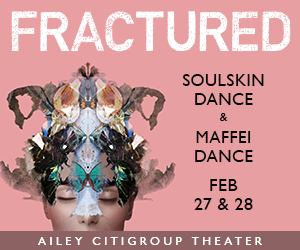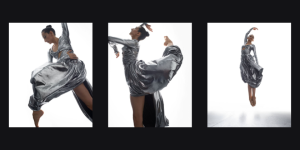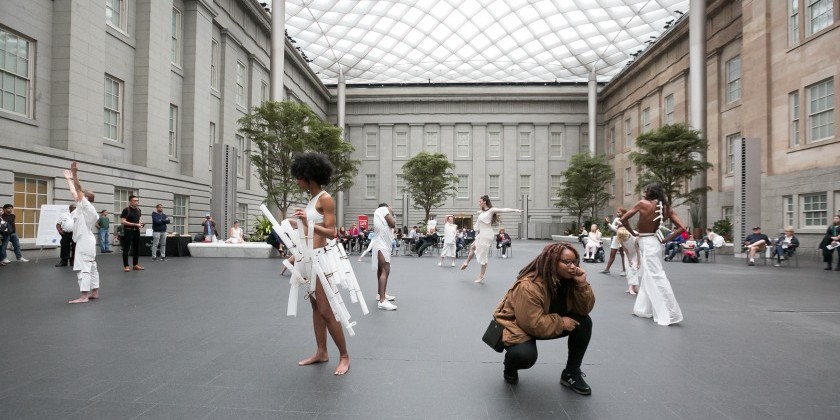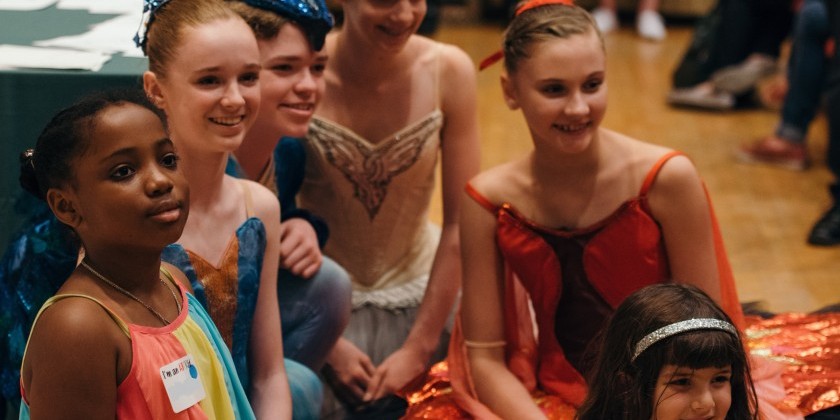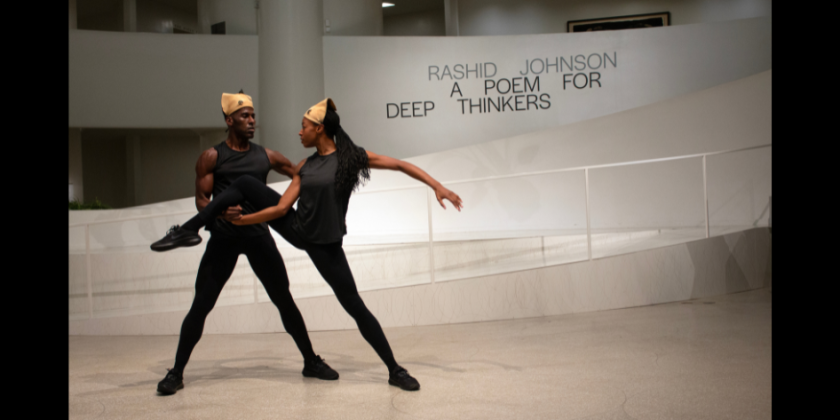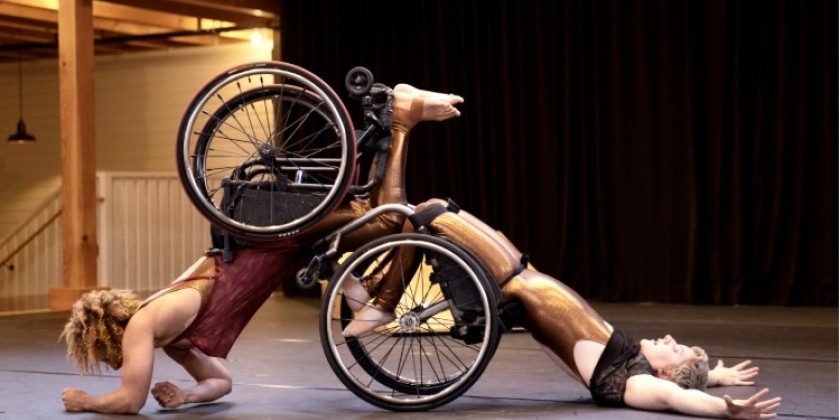IMPRESSIONS: Jerron Herman's "Temporary Body" at Cooper Hewitt, Smithsonian Design Museum

On April 20, 2025, at the Cooper Hewitt, Smithsonian Design Museum in New York, an architectural and art installation by Jerron Herman was presented. Alexa Grittith, manager of Interpretation & Public Programs, assisted in the curation of this unique and compelling event.
A truly multifaceted artist, Jerron Herman is an American choreographer, dancer, performance artist, writer, and teacher for The Dream Project at the National Dance Institute . He studied Dramatic Writing at NYU Tisch and later received a B.A. in Arts, Entertainment and Media Management from King's College, with an emphasis on art history and playwriting.
Jerron did not consider becoming a dancer, choreographer, or performance artist until he was 20, when he met Heidi Latsky, creator of Heidi Latsky Dance (HLD). Latsky, who is very open and interested in working with people with "other bodies," recognized Jerron's potential and played a pivotal role in his artistic journey when she invited him to join her company. Through her unique style and modern dance techniques, Jerron discovered his calling and danced with HLD from 2011 to 2019.

Jerron has cerebral palsy, specifically hemiplegia, which affects only his left side. He identifies as a disabled artist, but since his late twenties, nothing has stopped him from pursuing various endeavors. To further intrigue you, Jerron has modeled in ad campaigns for notable brands such as Tommy Hilfiger, Nike, HIMS, Samsung, and Google, among others.
Jerron used all his creative skills and background to create Temporary Body, an inclusive experience for a diverse audience. Along with his vulnerable and very personal choreography, he was joined by brilliant collaborators, including fashion designer Sugandha Gupta, soundscape designer, composer, and vocalist Molly Joyce, and his co-producer, the Interim Corporation.
His installation was inspired by the current exhibition An Atlas of Es Devlin at Cooper Hewitt. Jerron also drew inspiration from growing up in a close-knit, religious, and loving family with a social worker mother. This background informs much of his work. Temporary Body took its name from Devlin’s “Temporary Society, which audiences created within her exhibition.
When entering Cooper Hewitt, located across the street from the vast and stunning Central Park, the audience is escorted to wait on a specific floor. That day, there were two installations, one at 1:00 pm and the other at 6:00 pm. I attended the first performance that day. After experiencing the energy of the program, it's understandable why Jerron would need a break.
When the staff allowed the audience to enter, we were guided through the Carnegie Mansion, where we passed notices about other exhibits. We then entered a large room where Jerron, seated at a square wooden table, was covered from head to toe in see-through, white linen, which slightly obscured his view. Seats were arranged on the sides of several long tables, which held craft items such as scissors, tape, stickers, and buttons. We sat down as Jerron moved slowly and meditatively while atmospheric, somewhat haunting music played. Immediately, we wondered what would happen next.

It was fascinating to be part of this diverse crowd, including young children, who all immediately bonded when Jerron explained our task. As the sheath over his head was removed, he stood up, was handed a microphone, and a wreath was placed on his head. Jerron, naturally radiant and welcoming, invited us to "explore the craft table, create whatever we liked, either to share, take home, or 'adorn' him with." He also welcomed people to greet him when he sat back down. From that moment, we were all in.

who were all at one time, co-workers with Heidi Latsy Dance Company. Photo: Liz Ligon
As the craft table got busy, many greeted Jerron. My fellow HLD member, Donald Lee, and I posed for some fun pictures. Someone created a sticker design and placed it on my sweater. It was such a lovely and unifying event, with a genuine feeling of much-needed fellowship.
This lasted about 20 minutes before Jerron asked us to follow him down a hallway. We were led into a high-domed arboretum filled with throw pillows, plants, and bench seats around a bay window—an immediately welcoming space. Here, Jerron began a 15-minute stirring solo.
Jerron's choreography comes from a personal place. His voice initiates the work and the piece concludes with the sound of his intense breathing.

He begins slowly in a deep diagonal lunge with his neck extended long, his right arm moving in full circles, and his left arm bent behind his back, as it often is. Jerron also incorporates a pose that has become his signature, an arabesque where he stands on his right leg while his left leg lifts straight behind him, extending at a 45-degree angle from his hip with a flexed foot.
As he wound down, returning to his original lunge pose, we felt guided back to a quiet place, as if we had shared the ebb and flow of his experience. Both he, the performer, and we in the audience took a collective breath, and then there was not a sound in the room. The incredible space, the interactive participation, and the dance, combined with other collaborative elements, had a profound effect on each of us.

I am honored to have worked with Jerron Herman in HLD. He is an abundantly giving person onstage and off. His work will continue to inspire and educate us.



